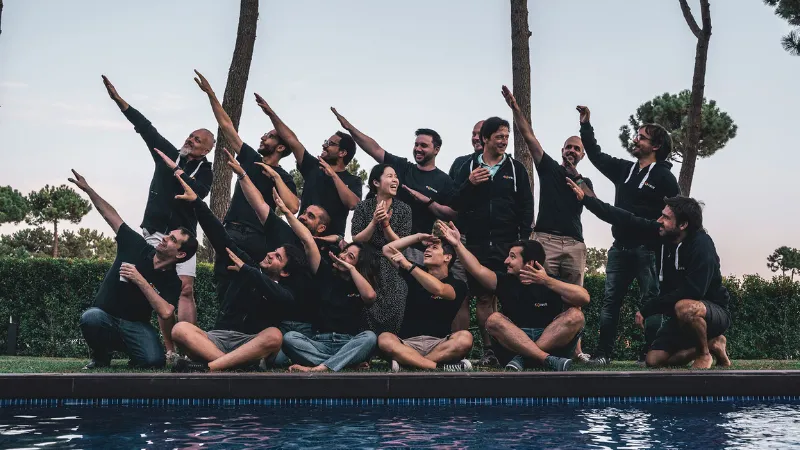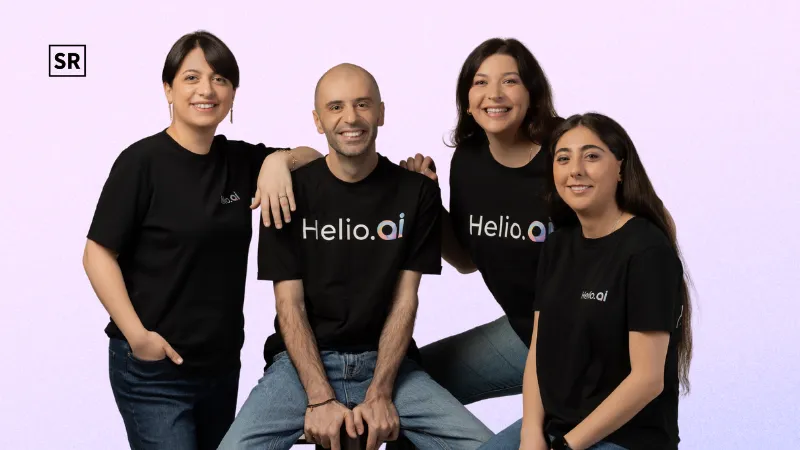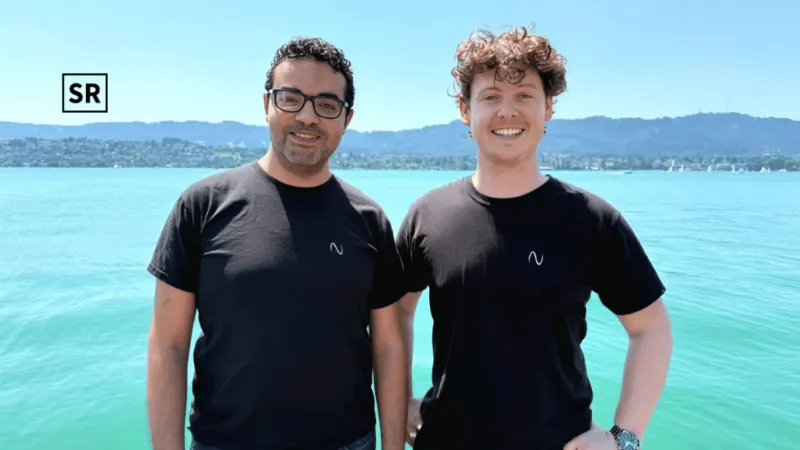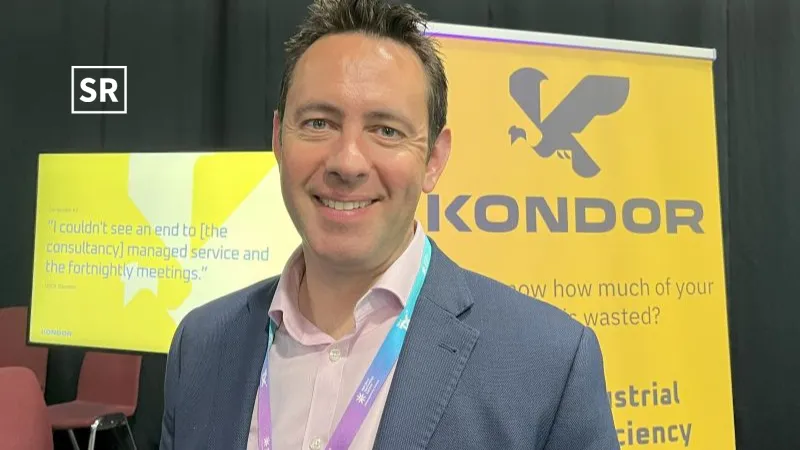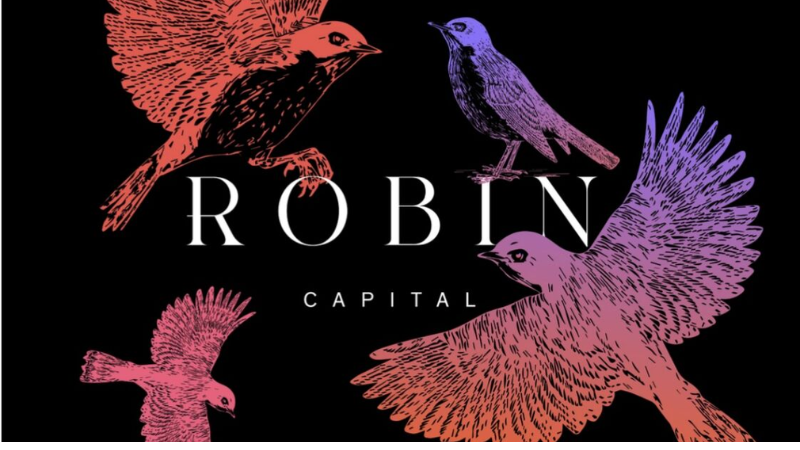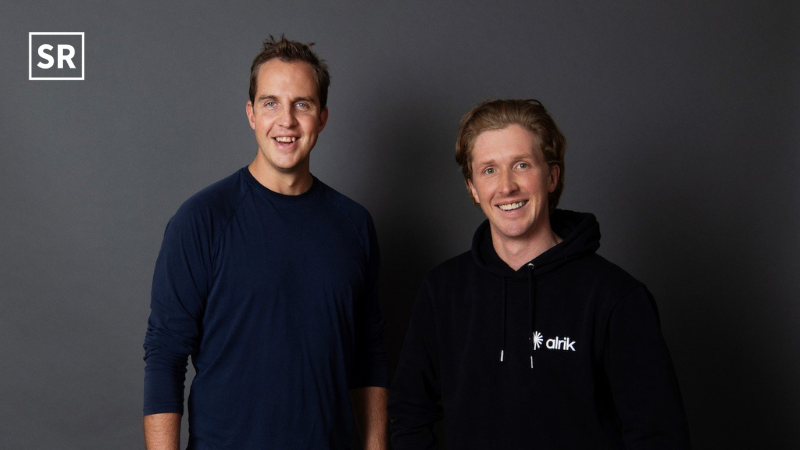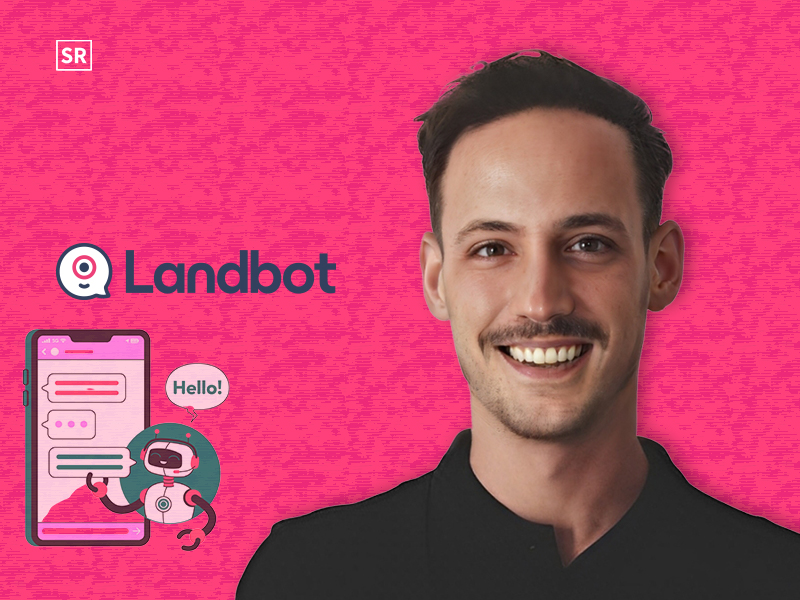
A simple chat can change business interactions and retractions, and Cris Villar proved it with Landbot. From early startup struggles to a game-changing pivot, his odyssey is a testament to innovation, adaptability, and the strategic use of AI. A fortunate glitch became a breakthrough, evolving how companies engage with customers.
This is the story of how Landbot, a company that leverages the power of AI to enable businesses to interact with their customers through chat interfaces, came to the forefront of conversational commerce.
Meet Cris Villar, the Co-Founder of Landbot. We witnessed Cris's innovative journey from an aspiring corporate professional to a tech entrepreneur, offering valuable insights into the evolution of conversational commerce and the strategic decisions that have shaped Landbot's success.
From Glassware to Chatbots: An Entrepreneurial Reawakening
Cris's entrepreneurial path began unexpectedly. Alongside a friend, he started a journey into the startup world with a glassware design firm. Although this initial endeavor didn't achieve traditional success, it was a crucial learning experience. Throwing back on this period, Cris emphasized the importance of persistence and innovation, stating, "It wasn't successful in the traditional sense, but it was a valuable lesson in persistence and innovation—key drivers for any entrepreneur."
The upturn came when Cris participated in a major Spanish accelerator program in Valencia named Lanzadera, a program known for nurturing and accelerating promising startups in Spain. It was then that he met his co-founder, Jackie Pan.
This experience shifted his aspirations from the structured world of economics to the domain of startups. "We just applied for the program, got in, and everything changed," Cris recounted, highlighting the significance of adaptability and embracing change in the startup ecosystem.
Also Read-Future Business Opportunities in Europe 2025.
Identifying the Opportunity: The Birth of Landbot
Inspired by emerging trends in China, Cris and Jackie recognized the potential of conversational commerce. They envisioned creating a "butler in WhatsApp," enabling users to interact and transact seamlessly through chat. This innovative concept aimed to transform customer engagement by leveraging the ubiquity and convenience of messaging platforms.
However, the initial business model—a WhatsApp-based service for ordering various items—proved challenging to scale. Cris believed that it was a very tough business model, difficult to scale, and would require money or technology, but unfortunately, they had neither.
This realization prompted a strategic pivot from a B2C model to a B2B SaaS approach, a move that underscored the importance of adaptability in the startup ecosystem. The focus shifted to providing businesses with tools to enhance customer interactions through chatbots.
Read Also-Top 12 Elder Care Startups in Europe 2025.
Innovation Through Serendipity: The Full-Page Chat Interface
Embracing the new direction, the Landbot team sought to leverage their unique advantage—integrating chat services with WhatsApp at a time when such capabilities were rare. During this stage, a serendipitous glitch led to a groundbreaking innovation. Originally designed as a small chat widget, a system bug transformed it into a full-page conversational interface.
This unexpected development significantly boosted user engagement and sparked the team's excitement for further innovation. Cris witnessed that visitors interact with the website through chat, which leads to a crazy conversion rate.
This accidental discovery prompted the team to rethink their approach, leading to the creation of immersive conversational experiences that have become a hallmark of Landbot's offerings.
Read Also- Leading Bootstrapped Startups in Europe 2025
Navigating the AI Hype: A Pragmatic Approach
In discussing the current fascination with AI, Cris drew parallels to past technological trends, such as the early 2000s rush for websites and the mid-2000s push for social media presence. He observed that many businesses adopt AI without a clear strategy or understanding of its role.
He was surprised to see everybody jumping on the AI bandwagon without really knowing why. "They know they need it, but not what for," Cris noted. This lack of direction can lead to misallocated resources and missed opportunities.
At Landbot, the integration of AI is approached with purpose and practicality. Cris emphasized, "If AI will help your process, then add it. If not, don't do it. You don't need AI for everything." This philosophy stems from extensive testing and real-world application within the company.
While AI can enhance certain aspects of customer interaction, it often performs no better—and sometimes worse—than simpler, more traditional methods in many scenarios.
Read Also-Top 12 Agritech Startups in Europe 2025.
Bridging the Generational Divide: AI in Customer Service
Cris offered a nuanced perspective on how different generations interact with AI in customer service. He observed that younger users tend to accept AI readily, viewing it as a commonplace tool designed to streamline interactions.
In contrast, older individuals might be more skeptical about AI and are more likely to believe they're engaging in a human conversation. "Older people are fooled the most by AI, thinking these conversations are real," Cris shared, shedding light on the complexities of user engagement across different groups of ages.
The effectiveness of AI in customer interactions, according to Cris, depends significantly on the context of its use. In industries dealing with sensitive information, such as banking or healthcare, the stakes are particularly high. Missteps in AI communication can lead to misunderstandings or errors, underscoring the importance of aligning AI applications with specific use cases to ensure they effectively meet user expectations.
Read Also-Top 12 Organic Food Startups in Europe.
Looking Ahead: Quality Over Quantity in Lead Generation
Landbot will focus on refining AI's role within the company and the wider industry. A significant segment of their engineering efforts is devoted to AI integration in Landbot, aiming to enhance its application in lead generation—a critical area for businesses seeking to capture and convert customer interest effectively and efficiently. Cris and his team are shifting focus from quantity to quality in lead generation. Illustrating an approach that prioritizes meaningful engagement over sheer volume. This strategy reflects an ongoing evolution in AI utilization, balancing technological capabilities with real-world application and value.
Read Also-Top 12 Best HealthTech Startups in Europe 2025.
Conclusion
Cris Villar's journey with Landbot exemplifies the dynamic interplay between innovation, adaptability, and strategic thinking in the tech industry. From humble beginnings to pioneering advancements in conversational AI, his experiences offer valuable lessons for entrepreneurs and businesses navigating the ever-evolving landscape of customer engagement and technology.
Read Also-The Rise of CancerTech Startups.
Recommended Stories for You

EpilepsyGTx Raises $33 Million Series A To Develop Single Dose Gene Therapy For Focal Refractory Epilepsy
Kailee Rainse Dec 11, 2025


 Follow us
Follow us Follow us
Follow us

